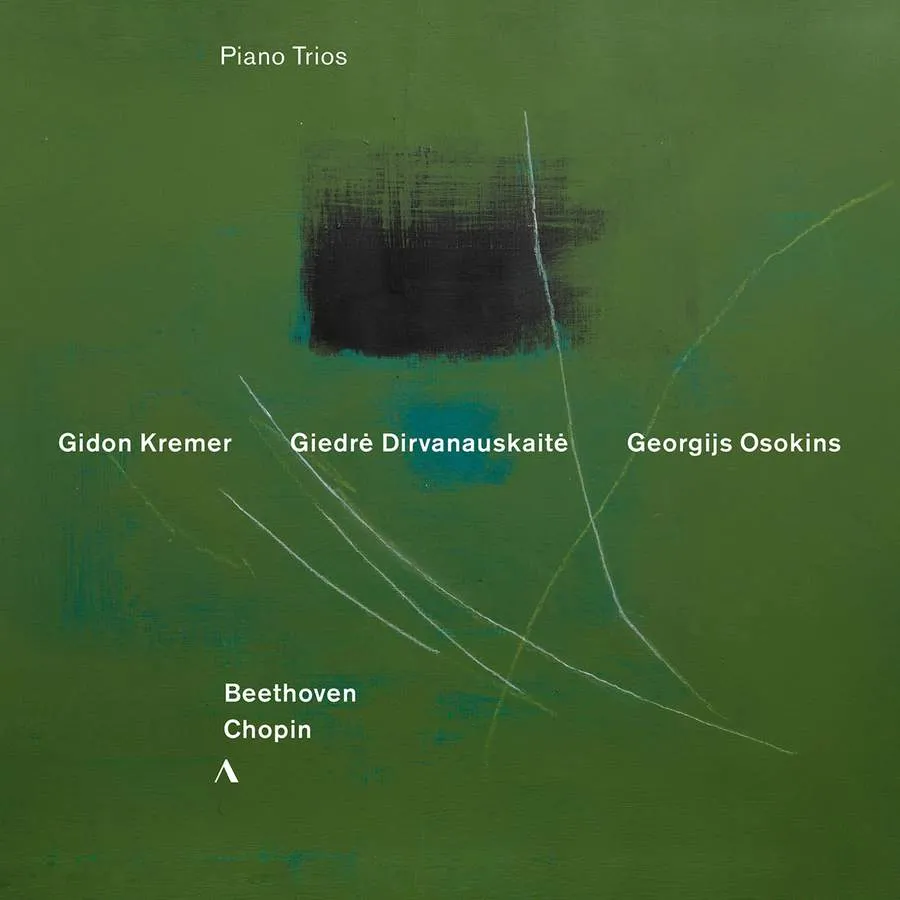
Beethoven • Chopin Beethoven: Triple Concerto, Op. 56 (arr. Reineke); Chopin: Piano Trio in G minor, Op. 8 Gidon Kremer (violin), Giedrė Dirvanauskaitė (cello), Georgijs Osokins (piano) Accentus ACC30529 67:19 mins
Ever the innovator, Beethoven invented a new form with his Triple Concerto of 1807, an exhilarating work that has always, however, had some detractors. True, Beethoven may have wanted to have his chamber-music cake and eat it with full orchestra, but since most of the icing seems to have landed on the chamber side it is not hard to imagine it as purely domestic music. The arrangement for piano trio by Carl Reinecke (1824-1910) evokes this nicely; though made in 1866-67 it is not a later Romantic recasting but a straightforward transcription, and it works very well. In this recording by three Latvian artists, the pianist Georgijs Osokins gives character to both what had been the orchestral tuttis and the more intimate writing. Gidon Kremer may produce sometimes sinewy tone, yet he brings a great musician’s feeling to the work – especially in the slow movement’s hymnlike spirituality – and Giedrė Dirvanauskaitė takes the lead as the cellist must in this piece.
The finale’s ‘Rondo alla Polacca’ is a tribute to the land of Chopin, whose own Piano Trio in G minor, Op. 8, is a masterpiece all too seldom heard. He composed it in 1829, the year of his debut in Vienna, where Beethoven had died only two years before. As the only non-orchestral work in which Chopin wrote for violin, Kremer seizes it gratefully, and he drives the ebb and flow of the first movement. If the slow third movement could have more bel canto beauty, everyone brings lightness and elegance to the finale.
Read more of our reviews of the latest Beethoven recordings here
Find out more about Beethoven and his work here
Read more reviews of the latest Chopin recordings here
Find out more about Chopin and his works here
John Allison